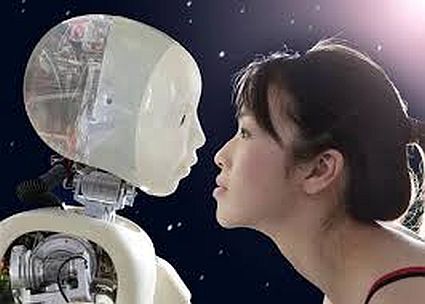There’s a lot of concern, wherever one turns, about AI and Robots becoming more “human.” Usually, it’s stories of AI or robots taking on human characteristics, mostly the bad characteristics. We reflect back on movies like “Terminator,” worrying about AI and robots taking over the world.
Daily, we see examples of various forms of AI based plagiarism, some unintended, some malicious and intentional. It’s increasingly difficult to discern what’s real and what’s fake.
But a reverse problem has been accelerating. It’s human beings emulating AI and Robots.
Meaning, context, connecting, caring, empathy, being “in the moment,” are all attributes that AI and Robots struggle with. These are uniquely human attributes.
Where AI/Robots are provide the promise to free people up to do the things AI/Robots can’t do, instead, too many seem to be following the example set by these tools.
As sellers, we aren’t connecting with our customers–the human beings that drive the strategies, creativity, innovation, and produce the results for the companies. We analyze the data, we do comparative analysis with other situations, we develop data based engagement strategies, we develop our scripts, our sequences, we program every interaction. But we don’t connect with the human being. We don’t try to understand who they are, what they face, what they stand for, or their dreams. We don’t connect with empathy, or demonstrate true caring. There is no compassion.
And, as a result, those human beings avoid us because we aren’t creating the meaning important to them. They know the AI/Bots are better than humans at what they do, for those purposes, they rely on the AI/Bots. But they are left trying to fill the gap that can’t be filled by those. The human connection.
We don’t engage them in the specific problems, situations, challenges, issues they are facing, we don’t understand the fears, concerns, dreams, aspirations they have. We don’t respond to the dynamics of what is happening in their interactions with others on their team, or outside their teams and organizations. We don’t fail to recognize the contexts are constantly changing and that understanding and dealing with these are the “human differentiator.”
Likewise, within our organizations, we lose connection with the individual. Organizations become depersonalized, people become replaceable widgets. People leave organizations because they don’t feel heard, cared for, or included (in the broadest sense of the term.) Managers, if they coach, coach to the numbers, without understanding what the numbers mean, what drives the numbers, and how to change the behaviors of the people producing those numbers.
The result we see, both with our customers and within our organizations, is the absence of meaningful human engagement and interaction.
Ironically, AI/Robots present us the data. We see declining performance and results. We see declines in customer engagement, declines in employee engagement. We see attrition and turnover skyrocketing, limiting our abilities to innovate, change, grow and thrive.
Socially, we see mental health and other problems, many stemming from the lack of genuine human to human engagement, empathy, caring.
AI/Robots don’t need human beings trying to emulate their behaviors. They will always be better at what they do than humans could ever be. And that’s why they present such promise. They do the things we don’t do as well or as efficiently.
But AI/Robots can’t do a huge amount—perhaps the most important things that drive us as human being, that cause us to innovate, imagine, grow and change. Those are the things which “human beings” are optimized to. It is in these human connections that we grow, achieve, and thrive–both from a business point of view and from the human interaction/engagement.
Perhaps, we better exploit the promise of AI/Robots, when we stop behaving like them, but instead focus on what humans do best…….

Great observations. The more we settle for highly heuristic low personal connection interactions, the more robotic we become– human or otherwise. The threat of AI only becomes real when we believe (and behave like) AI thinking is somehow superior to human thinking, acting, interacting. If we lower our own level of communication and interaction to nothing more than what is artificial and robotic– even if it is in the name of efficiency– of course we will be “threatened” that Skynet is taking over. AI will always be better at being ARTIFICIALLY intelligent than we can ever be.